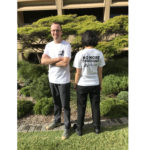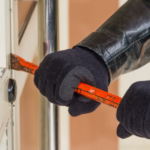Should the Media be More Accountable for False Reporting?

Most people know that you can’t believe everything you hear or read in the media. As well as making factual errors that later have to be corrected, inaccurate media reporting can feed biases and escalate even minor situations far out of proportion.
When it comes to reporting crime and court cases, the media can be particularly inaccurate and this can cause problems, from antagonism in the community to serious implications for those who are going through the legal process.
Most members of the public get their information about crime and the criminal justice system from what they see or read in the media, and not through personal experience or an in-depth understanding of the law and legal proceedings. Inaccurate reporting, or the emphasising of a certain angle in a report, can create confusion and lead to false conclusions being drawn by the wider public.
Common misconceptions that are often perpetuated by media reporting include the idea that crime rates are increasing, that hard line drug raids help to reduce the amount of drugs that are widely available on the street and the general idea that people who are charged with criminal offences are likely to be guilty.
How the media feeds into our personal biases
By reporting inaccurate information, or by emphasising or ignoring certain facts, public opinion can be shaped subtly in favour or against a particular view. In addition to this, readers will have their own personal views and there is often a tendency to ignore anything that doesn’t fit in with these and latch on to anything that does.
A reader who favours the police may blame inaccurate reporting or think “there’s more to the story, I’ll wait for the truth to come out” after hearing a report of police wrongdoing, while someone who takes a less favourable view of the police may take the original report as fact without questioning it.
An example of this is the recent incident where a man died after being tasered by police in Bowral.
Although very little information has been released about the circumstances surrounding the death, the fact that the man died shortly after being tasered by police, and that he was allegedly on methamphetamine are two facts which have been picked up by the media and used to reinforce a number of different beliefs, including that police are too quick to taser people, and that methamphetamine users deserve harsh treatment.
The danger is that sketchy reporting can lead to confusion and inflame biases. Even once investigations have taken place and the facts are made public, people will often interpret events to reinforce their own particular beliefs, ignoring those things that contradict their own personal biases and paying attention to those that support them.
Rumour and speculation can lead to further problems
Although there is always going to be a certain amount of fluctuation in how different people interpret events, it can also be argued that sometimes inaccurate or inconclusive media reporting can feed into fanaticism. This can then potentially lead to violent incidents or other criminal acts, including vigilantism.
Crime or fanaticism isn’t always a factor either – media reporting, rumour and speculation also have the potential to influence voters in an election for example and affect political outcomes.
Another repercussion of inaccurate media reporting and biases is that it can make it very difficult for a person to get a fair jury trial. Some cases which have been widely reported in the media have been considered unsuitable for a trial by jury due to the difficulty in finding jury members who could be unbiased and not influenced by the reports and discussions surrounding the case.
Simon Gittany is one high profile example of a case where the widespread media coverage meant that it was not considered likely that the defendant would get a fair trial by jury.
Should limitations be placed on media reporting of serious incidents?
There are a number of defamation laws in place to protect individuals against the publishing of inaccurate information by the media. These can be enforced with the help of lawyers, as happened recently in the case of a teacher who was wrongly identified as being a perpetrator of sexual abuse at a boys’ school in Sydney.
But currently, unless a person sues for defamation, there are no legal consequences under criminal law for incorrect or biased reporting. The main problem with restricting media reporting is that it could potentially interfere with the idea of freedom of the press.
As everyone has a different opinion, it is very difficult to create a common standard for biased or unbiased reporting, unless media outlets are restricted to merely reporting facts, which often don’t come to light until a long time after an incident takes place and an investigation has been completed.






